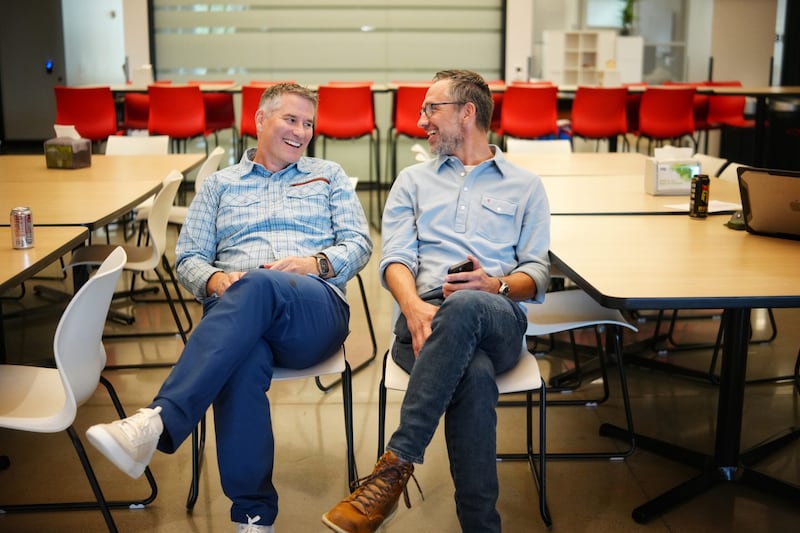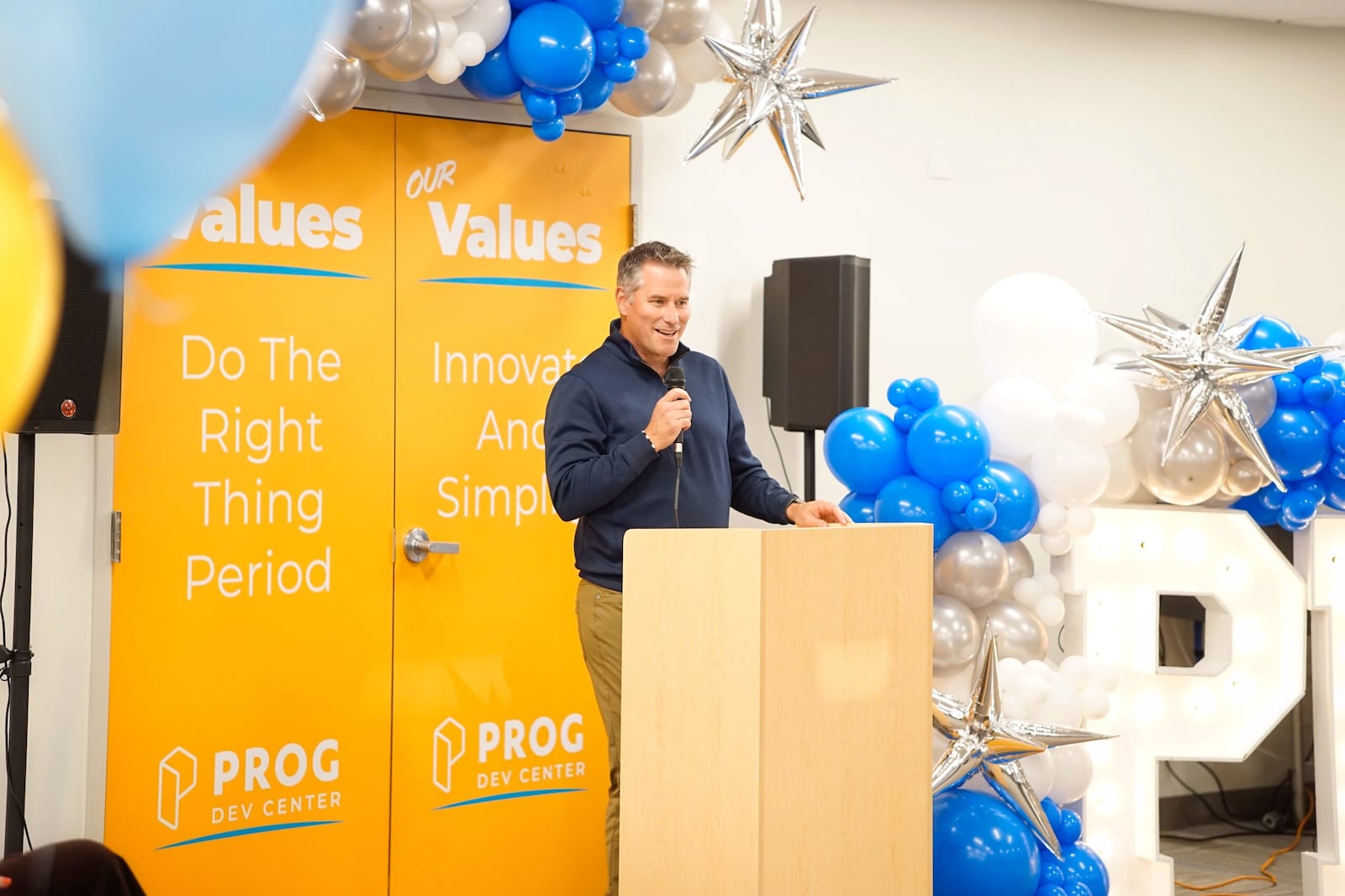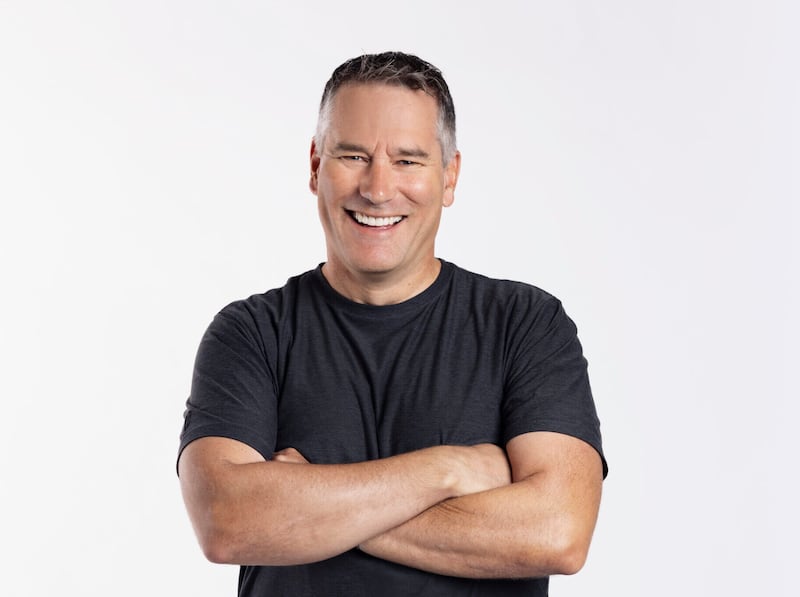
Almost 25 years ago, Brent Wilson and I captured lightning in a bottle when we co-founded Progressive Leasing.
We were successful because we served an ignored part of the country’s population, allowing them to buy what they needed most on their own terms. The company was not an overnight success but a steady and incremental one.
It all started when my parents bought an Apple II Plus when I was 10 years old. I fell in love with it. From that point, I wanted to write code and maybe start a computer business. Luckily for me, I had supportive parents. My dad helped secure the legal documents and operating agreement while I registered SoftArt Computer Design. I had no idea how I’d make money yet, but I had started my own company!
A year later, I had an opportunity to automate loan documents for financial institutions. Because my dad ran Granite Credit Union, I was familiar with the often cumbersome process of loan officers filling those out using typewriters. I simplified the process with my software.
The journey begins
It was the first real money I ever made. A financial institution’s whole IT department was usually just one guy back then; when I showed up, I became the expert. They asked what hardware to buy and what software to use. An idea formed: I could sell them hardware. I called Ingram Micro to tell them I wanted to be a distributor. Not 30 seconds into that call, I was asked my age. When I told him, he laughed. Apparently, they weren’t interested in doing business with a 14-year-old.
Instead, I found a brand new distributor in Salt Lake City who was willing to sell me hardware. I marked up what I sold to banks by 10 percent. There was pure transparency in that, and they loved it. It was easy to sell $3,000 worth of computers and make $300
This also gave me a chance to meet with people who had more business experience than I did. A number of insurance agents sold to banks, and the banks needed new forms when they did. Those agents became my clients as well. Newly automated forms led to insurance business, and both helped me acquire new work.
One agent I developed a close relationship with was Brent Wilson, Progressive Leasing’s eventual co-founder. He was the perfect mentor and partner for a young and aspiring entrepreneur. He’d started a mortgage document preparation company and had one client. When I returned home from a church mission to Taiwan, we started working together. In exchange for software for the company, called International Document Services, Inc. (IDS), I acquired equity. Later, we also went on to acquire CheckStop, a consumer finance company.
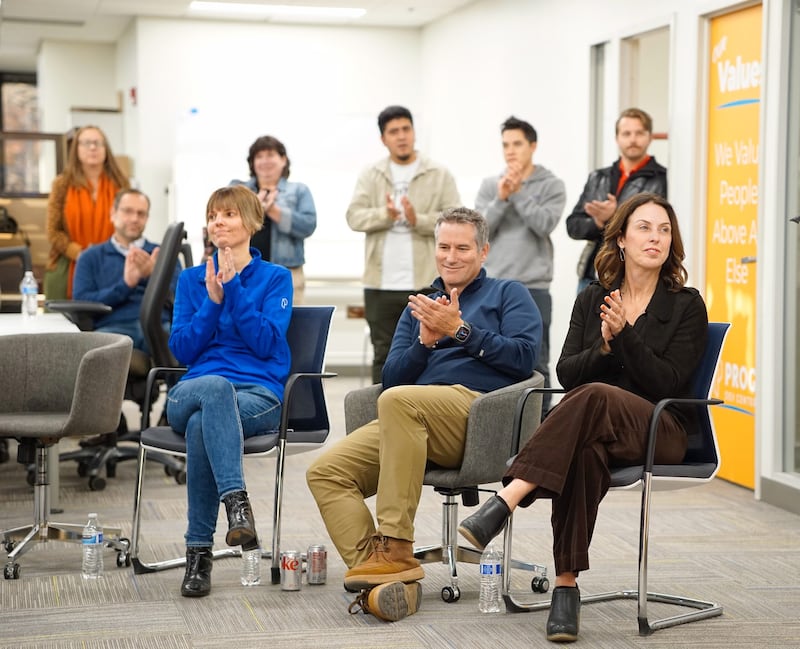
Serving the underserved
At that time, furniture retail stores were only approving financing for those with good credit, and it was all based on FICO scores. Up to 40 percent of customers who applied were turned away.
A fast assumption was made: If someone tried to buy a couch or mattress and was told no, they were probably going down the street to a lease-to-own (LTO) store. But what if we took the LTO contract and virtualized that experience, allowing customers to shop wherever they wanted to? That was the genesis of how we started Progressive. We took a concept that had been around for 30 years and reinvented it, enabling retailers who had previously been unable to serve that customer to be able to take care of them. It allowed both retailers and consumers to win. Sales were saved, and customers could get the merchandise they wanted.
Progressive didn’t have any competition for the first five to six years because we kept such a low profile. The limelight wasn’t important. We wanted to go a different route entirely by not broadcasting it. In fact, we didn’t even have a marketing website or a sign on our building for many years. We were growing as fast as we could. Earnings from IDS allowed us to keep up with Progressive’s growth, a true win-win.
The company quickly became well-known in some circles, especially in the world of furniture. We were offering a virtual lease-to-own solution for individuals with less-than-perfect credit.
The great part about retail furniture is that competitors shop at one another’s stores. We’d find a retailer in Houston and set them up with Progressive, and our phone would start ringing right away. It was other furniture companies calling. They’d visited that store, grabbed one of our brochures and wanted to add us to their customer payment options. We didn’t have to search very much to attract new business
From the time we opened in 1999 until 2012, we only had four internal salespeople. That’s how much the product resonated. There was no external marketing or trade shows. Our hands were already full.
Stores had a primary financing option for those with prime or near-prime FICO scores. Scores ranking any lower were considered subprime and became Progressive’s customers. We took all the declined applications these retailers had and turned a lot of no’s into yes’s, which was a very strong value proposition for retailers
We only needed one evangelist. A sales representative who wasn’t getting their bonus was suddenly salesperson of the month, hitting every possible bonus. The difference? They offered Progressive as an option to those who had been turned down for credit. When that happened, the whole organization would get behind Progressive.
Figuring out how to underwrite that customer is part of the secret of our success. We’ve been good about saying yes, and in a way, it was a lot less expensive than saying no. Doing that over and over for so many people allowed Brent and me to build a sustainable long-term business.
These were customers who had been taken advantage of and treated like second-class citizens. We took great care of them and gave white-glove service. Our customers lived paycheck to paycheck — if they had any hiccup or unexpected expense, their whole world came crashing down. Instead, we worked with them. We wanted them to own that TV. In the end, we were repaid and had customers for life, building loyalty in both directions.
Our product was priced not by how much but by how little we could charge while still running a profitable business. If we took good care of our customers, we believed they would use us again and refer their friends, which is exactly what transpired. That’s always been part of Progressive’s magic.
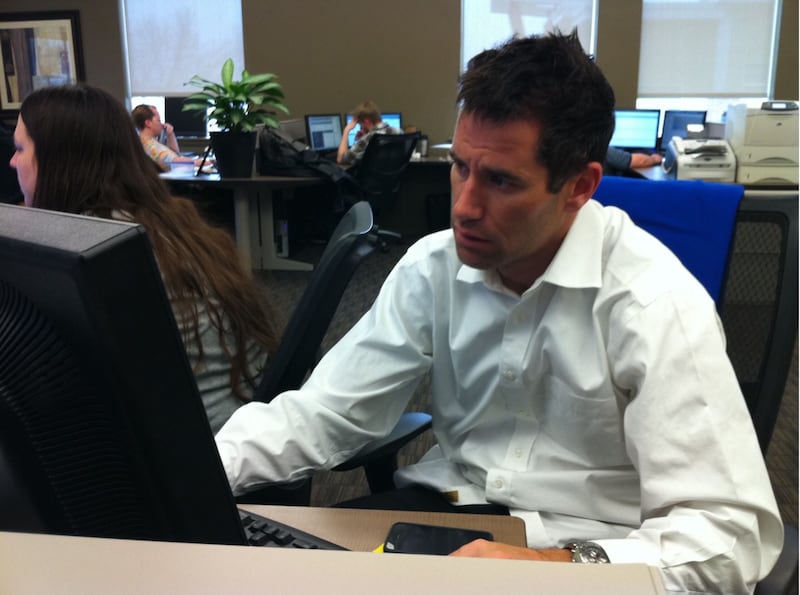
Setbacks and recoveries
Growing pains were constant. It was like trying to change engines on a plane while still 30,000 feet in the air. It was a matter of keeping the business running while keeping systems working correctly, hiring new people as fast as we could and figuring out where to put them. Space was always an issue. A lot of people worked from card tables in hallways
It was stressful but rewarding to have a fairly unique service performing so well. We hoped and prayed nothing went sideways, but we still experienced our share of scares.
When you grow that fast, you sometimes gain the wrong kind of attention. In 2002, our office was broken into. By the time we got there, thieves had stolen all of our computer servers except for the one that was left behind to prop the door open while they took the others.
All of our data was gone. Everything. All our systems were on those seven servers. When I went to pull the backups, they were corrupted. It felt like we were out of options. All of this money was out on the street, and we had no idea who our customers were or how to collect payments.
We had one saving grace. The server left behind, the one used to keep the door open, was our main backup server. Because they didn’t get that one in time — likely because an employee had arrived at work early and scared them off — we were able to recover all of our lost information. It saved us. We were up again that afternoon, business as usual.
Because we were in an old former bank at that time, the vault quickly became our new server room. I slept a little better at night after doing that.
Empowering future generations
Progressive has continued to grow and scale over the years because we’ve taken such good care of our customers. One way we give back is through the PROG Youth Development Center in West Valley City, which helps young adults graduate from high school and find careers through financial aid, mentors and technical certifications. Another way we give back is through the Doman Innovation Studio at the University of Utah, which helps young entrepreneurs launch their companies
Both have been passion projects of mine for years. It was important for me to feel connected to both causes and that I was doing more than writing checks. Because of the phenomenal success we experienced at Progressive, I’m now able to help other individuals and companies find and develop their own successes.
Lessons learned
In the business world, don’t be afraid to take the first step. When I started my first company, I had no plans for what to do next. My first step was getting my company registered with the state. I believe that when you start taking action, the path will probably change from what you first envisioned for it. Devote time and effort to it anyway. You will produce results.
It takes a lot longer than you think. Even with a company like Progressive, it took decades. I’m a fairly active angel investor and am connected to over 80 cap tables. Every time I make an investment, I have a 10+ year time horizon on that money — I know that’s how long it takes to build. The ones that happen any faster are exceptions.
Create goals of all kinds, large or small, and remain focused. On my desktop computer, I used to have “1M/30” in the bottom right corner of my screen, so I saw it daily. My goal was to be a millionaire by the time I turned 30 (and I was able to beat that goal by two years). Have an everyday reminder to help push you forward and keep you aligned on your vision.
There’s a reason our name wasn’t on our building before 2018. We didn’t need billboards telling the world we were doing great things; we just went out and did it. Keep score against yourself. That’s what matters most.
